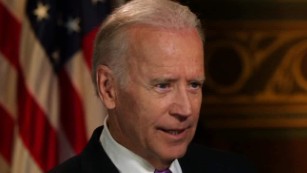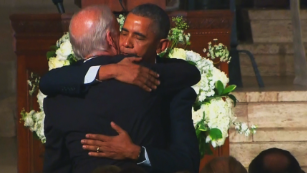Both Parties Agree: Selling Out Is Worth It

FSTOP IMAGES - ANTENNA VIA GETTY IMAGES
Pity poor Washington. No doubt breaking the hearts of elected and appointed government officials, their staffs and hangers-on, the Open Secrets blog at the Center for Responsive Politics reports that the "influence industry appears to be contracting, and the trend continued in 2015."
But before you shed a single poignant tear, like Iron Eyes Cody in those old "Keep America Beautiful" TV spots, kindly note that the money spent on lobbying merely slipped from $3.24 billion in 2014 to $3.2 billion. That's still an awful lot of lettuce, more than enough to spread the corporate love around big time, cash on the barrelhead for votes, deregulation, tax breaks, insider information and other assorted favors. Nor is it even counting campaign contributions.
Those who are wearing their money belts just a teeny bit tighter include the top 10 spenders of lobbying dollars in our nation's capital. But again, we're only talking about a shift from $323.7 million in 2014 to just under $282 million.
Coming in at first and second were the US Chamber of Commerce and the National Association of Realtors, followed by the American Medical Association, Boeing and General Electric. For many of the top 10, their big push on Capitol Hill last year was for the reauthorization of the Export-Import Bank, which greases the wheels with loans and credit lines for the overseas purchase of US goods and services.
The bank has been a scourge of right-wing members of Congress, who dislike anything that smacks of the foreign. They blocked the renewal of its charter when it ran out at the end of June. But lo and behold, the fix was in. The lobbyists went into hyperdrive, cash flowed and the bank's charter renewal magically appeared in the highway bill. Abracadabra -- money talks.
In Washington, it not only talks, it bellows like a bull. In fact, despite the slight decrease in spending, overall, the "top lobby firms are riding high," according to the congressional newspaper The Hill, even as they "enter an election year where the 'establishment' is under attack.
"Most of K Street's 20 largest firms by revenue saw their advocacy fees rise in 2015, with some getting an extra boost from the flurry of legislating at the end of the year."
"Most of K Street's 20 largest firms by revenue saw their advocacy fees rise in 2015, with some getting an extra boost from the flurry of legislating at the end of the year."
Biggest of all the influence mills is Akin Gump Strauss Hauer & Feld, co-founded back in 1945 by former Democratic National Committee Chair Robert Strauss, the godfather of inside the Beltway wheeler-dealers, and the man who famously explained the boom in the lobbying business to journalist Robert Kaiser with these simple words: "There's just so damn much money in it."
As Bill Moyers and I wrote in September 2014, "Akin Gump handles Beltway business for everyone from Amazon and AT&T to UPS and the US Chamber of Commerce (ah, that champion of the people!), along the way making generous campaign contributions - hundreds of thousands of dollars' worth -- to candidates of both parties."
The Hill reports Akin Gump earned more than $39 million last year, "a nearly 11 percent increase over 2014."
The newspaper continued, "Akin Gump benefitted from a slate of prominent new hires, most recently bringing on former Sen. Kay Hagan (D-N.C.)."
Yes, feel the gusting breeze and hear the rush of the revolving door, so much a staple of Washington and the lobbying trade they should have them on sale at the local Home Depot. It rotates between public service and private profit, scooping up in its swirl the expertise and influence of former officials and putting them in the lucrative service of big business. Republicans and Democrats alike, few are resistant to its spin.
"Members of Congress now make $174,000 a year -- not a bad living," Lee Drutman writes at Vox. "But usually they can at least quintuple that salary by switching over to lobbying once they retire. And many of them do just that."
Kay Hagan served only a single term in the US Senate but as the Politico Influenceblog reported, during that time "... She served on the committees for Health, Education, Labor and Pensions (HELP); Banking, Housing & Urban Affairs; Armed Services; and Small Business and Entrepreneurship. She chaired the Emerging Threats and Capabilities Subcommittee of the Armed Services Committee." Those assignments made her a prime prospect for recruitment.
Yet as intrepid journalist Lee Fang wrote at The Intercept, Akin Gump is "an odd perch" for the former senator who was defeated for re-election in 2014, and not just because the firm's US Chamber of Commerce client spent millions attacking Hagan and supporting her victorious opponent, Thom Tillis.
"After losing her seat, Hagan said in speeches that the biggest problem in America today is the dominance of big money, noting that the wealthy and special interests have come to control the political process through lobbyists and Super PACs. 'We have got to get the obscene money out of politics, and I think that would change politics,' Hagan told the Rotary Club of Greensboro last year."
Getting rid of the money certainly would change politics, but apparently the definition of what an obscene amount is depends on who's receiving what from whom and when. "Coming here feels like a very natural fit," Hagan said in an Akin Gump press release.
Other recently defeated Senate Democrats haven't been thrown into any great moral quandary either. As The Hill reported, last February, "Arkansas's Mark Pryor landed at Venable... while Alaska's Mark Begich went to Brownstein Hyatt Farber & Schreck in April. In May, Louisiana's Mary Landrieu went to Van Ness Feldman and began working for energy clients."
Among Kay Hagan's colleagues at Akin Gump are former Republican Senator John Sununu and ex-GOP Congressman Bill Paxon. So the lobbying racket is one part of Washington life that continues to pay little heed to party lines or past professions of purity. In other words, like the world's other oldest profession, show me the money and I'm all yours.




